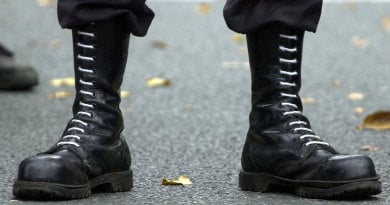Heye, a co-founder of Gesicht Zeigen!, an organization working against right-wing violence, said in Berlin on Monday that 2007 was a new “negative record” year, with some 600 injuries attributed to racist attacks. Since German reunification in 1990, Heye said 130 asylum seekers, immigrants, and homeless people have been killed in such crimes by right-wing extremists.
Eastern German states have experienced the greatest rise in neo-Nazi attacks, Heye said. In the state of Brandenburg, which surrounds the city-state of Berlin, there were 11 attacks on immigrant-run businesses in 2007.
“Behind this lies the neo-Nazi’s goal-oriented strategy to destroy livelihoods and drive out immigrants,” he said, adding that the financial costs are immense. “Nazis destroy jobs too,” he said.
Heye spoke at an event to kick off a Gesicht Zeigen! campaign against racism. Some 120 events in March call for more civic courage against right-wing activity.
Heye, who was government spokesman between 1998 to 2002, criticized the lack of government spending on the victims of right-wing extremist crimes, particularly emphasizing their need for professional psychological care.



 Please whitelist us to continue reading.
Please whitelist us to continue reading.